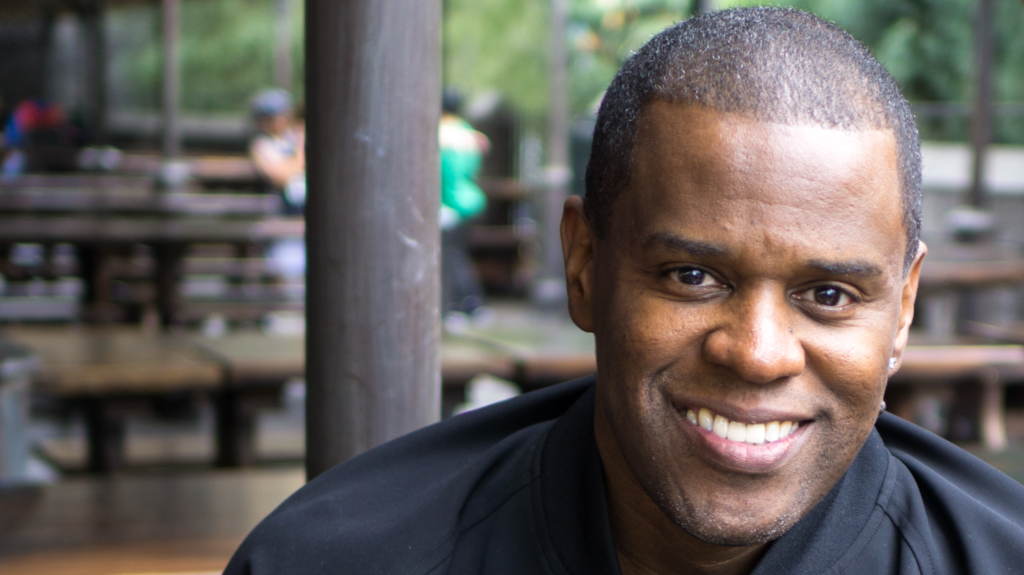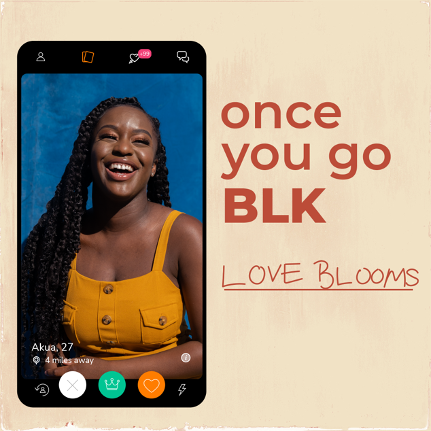The West Coast Premiere of an ambitious filmed song cycle dedicated to the celebration of Black artistic voices, Breathing Free. One man’s experience with being Black in America, and the fight for racial justice…Still. Blake Hill-Saya talks about her biography of her great, great grandfather, Dr. Aaron McDuffie Moore, co-founder of Durham, North Carolina’s famed Black Wall Street.
The Broad Stage Presents The West Coast Premiere of
Heartbeat Opera’s Breathing Free
An ambitious filmed song cycle dedicated to the celebration of Black artistic voices.
Wednesday, February 10 at 7pm PT
Saturday, February 13 at 7pm PT
Featuring 9 interconnected music videos with music from
Beethoven’s Fidelio, Negro spirituals and works by Harry T. Burleigh, Florence Price, Langston Hughes, Anthony Davis and Thulani Davis.
Each screening will be followed by a live panel discussion with artists and advocates highlighting themes surfaced in Breathing Free relating to incarcerated populations.
Tickets and info at thebroadstage.org/breathingfree.
Heartbeat Opera, the radical indie opera company “leading the charge in online opera” (Parterre) with “groundbreaking” virtual content (Operawire) that is “hacking the corporate contours of Zoom into a postmodern proscenium” (Washington Post)—announces the West Coast Premiere of Breathing Free, an ambitious filmed song cycle dedicated to the celebration of Black artistic voices.
Breathing Free builds on Heartbeat’s 2018 collaboration with 100 incarcerated singers in six prison choirs, part of a contemporary Fidelio told through the lens of Black Lives Matter—a production that left Alex Ross of The New Yorker “blindsided by its impact.” Created in a time of George Floyd’s murder, a pandemic which is ravaging our prison population, and the 250th anniversary of Beethoven’s birth—Heartbeat has curated a song cycle brought to life in vivid music videos, mingling excerpts from Fidelio with songs by Black composers and lyricists, which together manifest a dream of justice and equity.
This 45-minute “visual album” features three singers, three dancers, eight instrumentalists and a robust creative production team. Rehearsed remotely on Zoom, the cast has recorded their individual audio tracks at home, with the music team then layering the tracks together. Heartbeat’s filmmaker Anaiis Cisco collaborates with cinematographers to film the performers in New York, Chicago, and Los Angeles.
The presentation will be livestreamed along with live opening remarks and post-screening panel discussions with artists and activists highlighting the timely themes surfaced in Breathing Free. Audience Q&A will follow the panels. Participants for each panel are TBD. The Broad Stage provided additional support for the creation of this work.
CREATIVE TEAM
Director: Ethan Heard
Filmmaker: Anaiis Cisco
Creative producer: Ras Dia
Co-Music Director and Arranger (Fidelio): Daniel Schlosberg
Co-Music Director: Jacob Ashworth
Movement Director: Emma Jaster
Director of Photography: Kathryn Boyd Batstone (Los Angeles)
1st AC/Gaffer: Celine Layous (Los Angeles)
Director of Photography: Jacob Mallin (New York & Chicago)
1st AC/Gaffer: Matt Iacono (New York & Chicago)
Associate Movement Director: Tamrin Goldberg
Arranger (Malcolm X, Balm in Gilead) & Associate Music Director: Sean Mayes
Stage Manager: Jessica Emmanus
Assistant Director: Mar Cox
Sound Editor: Gleb Kanasevich
Sound Mixer: Sam Torres
Music Assistant, Orchestra Manager & Copyist: Mona Seyed-Bolorforosh
CAST
Derrell Acon, bass-baritone
Curtis Bannister, tenor
Kelly Griffin, soprano
Randy Castillo, Tamrin Goldberg, Brian HallowDreamz Henry, dancers
Also featuring the voices of more than 100 incarcerated singers and 70 volunteers
from six prison choirs: Oakdale Community Choir, KUJI Men’s Chorus, UBUNTU Men’s Chorus,
HOPE Thru Harmony Women’s Choir, East Hill Singers and Voices of Hope
BAND
Jacob Ashworth, violin
Marika Hughes, cello
Miki Sasaki, trumpets
Kyra Sims, horn
Thomas Flippin, guitars
Britton-René Collins, percussion
Daniel Schlosberg, piano
Jason Thomas, piano
Prisoners Chorus features: Laura Weiner (horn), Nicolee Kuester (horn), Clare Monfredo (cello),
Daniel Hass (cello), Euntaek Kim (piano) and Ben Cornavaca (percussion)
More Information:
Tickets are “Pay What You Wish” starting at $10 and can be purchased at thebroadstage.org.
For further assistance, call Patron Services at 310.434.3200 or email patronservices@thebroadstage.org.
One man’s experience with being Black in America,
and the fight for racial justice…Still.
In a time of civil unrest, political uncertainty and the inability to produce on stage, Pasadena Playhouse has launched PlayhouseLive with Still., a very personal performance sharing the experiences of a Black man at a pivotal time in our nation’s history, commissioned by the Pasadena Playhouse. Written and performed by spoken word artist Javon Johnson and directed by Donny Jackson, Still. blends powerful imagery witty prose and beautiful lyricism in this timely, powerful theatrical experience.
“This is an unprecedented time for our nation,” stated Danny Feldman, producing artistic director of the Pasadena Playhouse. He continues, “At times of national reckoning, the arts have played a major catalyst in sparking conversation. After the tragic murder of George Floyd and all the other countless Black men and women who have come before and after, the arts have been challenged to find a way to bring people together in a safe, socially distant way to talk about these issues. In that spirit, we launched PlayhouseLive, a nonprofit streaming platform, to use our art to speak to the nation and give voice to those in our community when it is needed the most. Still. brings support for the Black Lives Matter movement front and center; it is a condemnation of systemic racism in our nation through Javon’s powerful words.”
When asked about the title, Still., award-winning artist Javon Johnson stated, “What I love about the title of the show is the way in which is calls for the fact that Black folks, that Blackness that the Black liberations efforts are still ongoing. That we’re still dealing with racism, racial inequality and injustice. That we’re still dealing with the things that we thought, at least some of us, thought we were past. That we are still fighting. That we are still marching in the street. That we are still demanding for fairness, for equality. But even more than that, that we are still joyous. That Black folks still love. That we still laugh. That we still persevere in spite of the fact that some of the ways in which the world exists has tried to announce us dead upon arrival. But that we are still here living and engaging one another. That we are still giving the system graciously the opportunity to prove itself to us. And even more, I think of still in the very biblical sense of ‘be still and know.’ That’s not a be still and know and not do anything, that’s to stand righteousness in the position that you are and just know that tomorrow will come. That something better will come with the work that so many people are putting in…still.“
More Information:
Still. can be rented through PlayhouseLive for $19.99 and is available. After the initial purchase, Still. can be watched on any of the PlayhouseLive apps including Apple OS, Android OS, Roku, FireTV and more. Closed captioning will be available in both English and Spanish.
Additional information about PlayhouseLive and its programming, including new announcements and pricing specials, is available at www.playhouselive.org.
For Black History Month
Caltech launches Behind the Book, their new author series
Blake Hill-Saya
talks about her biography of her great, great grandfather,
Dr. Aaron McDuffie Moore, co-founder of Durham, North Carolina’s famed Black Wall Street
Monday, February 1 at 5:00 p.m. PT
Registration required for this online event:
https://events.caltech.edu/btb_blake
CaltechLive! is excited to begin Black History Month with biracial author Blake Hill-Saya as she discusses her recent nonfiction book, Aaron McDuffie Moore: An African American Physician, Educator, and Founder of Durham’s Black Wall Street, live on Monday, February 1 at 5 p.m. PT.
This event is the first in the Behind the Book authors series, which facilitates conversations with authors who explore the intersections of the arts, science, and society through the lens of family histories. Hill-Saya will be interviewed by Monique Thomas, program coordinator at the Caltech Center for Inclusion & Diversity.
Moore, who was Hill-Saya’s great-great-grandfather, was a physician, businessman, humanitarian, and co-founder of Durham, North Carolina’s famed Black Wall Street. He was a primary figure in establishing the city as the capital of the African American middle class in the late 19th and early 20th centuries.
Aaron McDuffie Moore: An African American Physician, Educator, and Founder of Durham’s Black Wall Street is published by University of North Carolina Press (May 18, 2020). It was co-written by G. K. Butterfield, U.S. representative for the 1st District of North Carolina, and C. Eileen Watts Welch, president and CEO of Durham Colored Library, Inc.
More Information:
Free and open to the public. Information at events.caltech.edu
Advance Zoom webinar registration is required.
Register at: https://events.caltech.edu/btb_blake
 Westside Story Newspaper – Online The News of The Empire – Sharing the Quest for Excellence
Westside Story Newspaper – Online The News of The Empire – Sharing the Quest for Excellence

